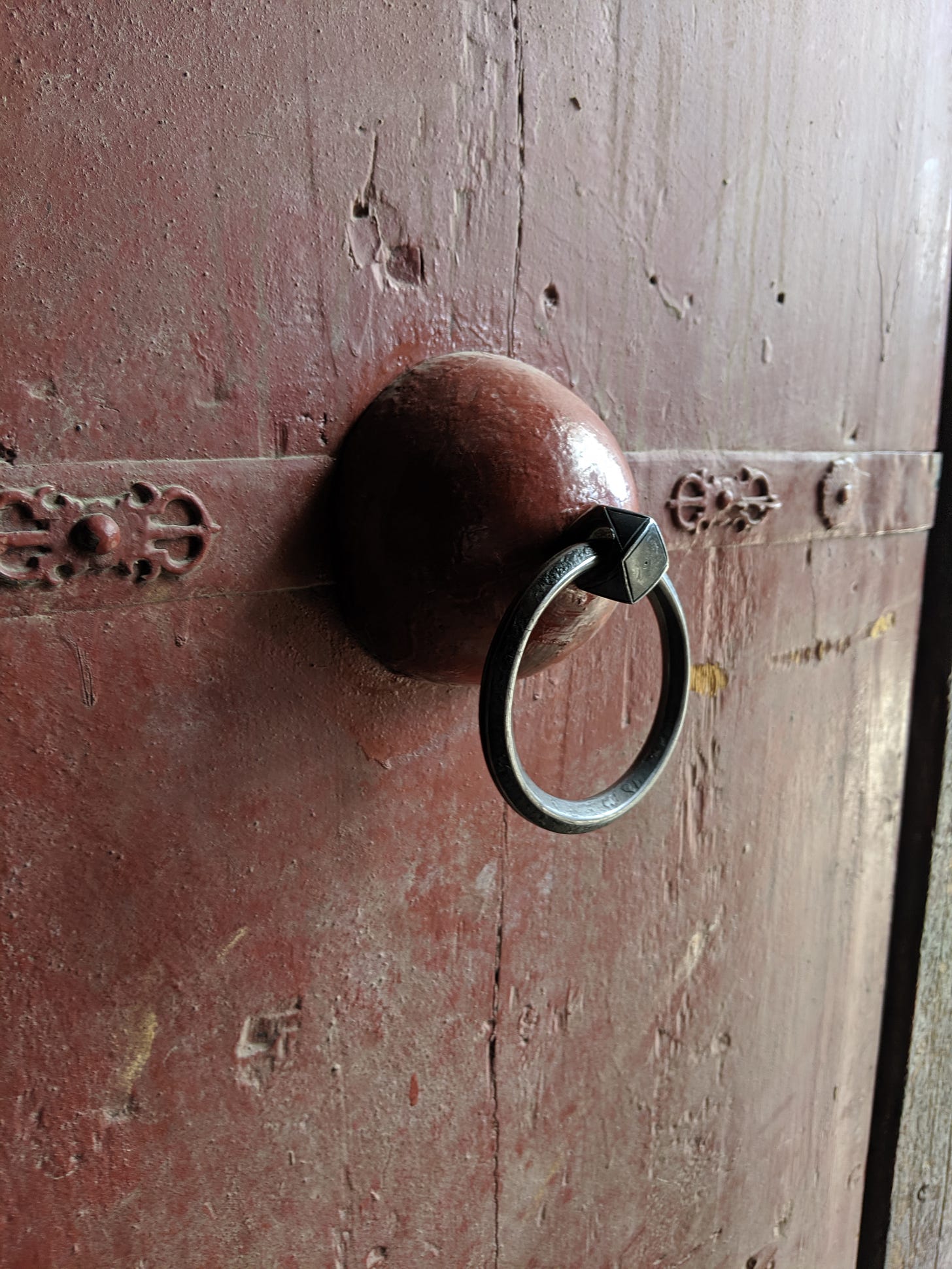Entries
On Opening Lines from O'Neil, Hoffman, Ferreira, and Khalastchi
I’ve been working my way through my AWP reading pile, and I’ve been enjoying and learning from all the books I’ve read so far. I have been particularly aware of some excellent opening lines that have me thinking about entry into a poem.
I’ve also been finishing up a class on using the language/forms of music in poetry with the brilliant Alina Ştefănescu. In our last class conversation, she shared an idea (hers? someone else’s? I can’t remember and didn’t write down a source…) that a title is a sign on the door, an epigraph what one can see from a threshold; that an opening line seduces the reader to the lip of a lake, and the second line coaxes the reader into the water. I like that idea very much, but I also have been enamored with the idea that a first line can be a cannonball directly into the lake.
Here are some first lines from my reading this past week that stuck with me. (For the sake of clarity, I consider the first line to be the first sentence or completed thought.)
"The dragonflies are totally fucking, spinning like a Ferris wheel out of control, hovering as they savor summer's last gasp." January Gill O'Neil, "Dragonfly" from Glitter Road I love the surprise of the word fucking after the line break. Usually we get the descriptive appearance of dragonflies in poems: their irridescence, their shimmer, their gentle airborne delight. This turn of expectation was appreciated and the perfect entry for a poem that explores the empowerment of a single female to seek pleasure. "In the graveyard, one white stone charges toward the sky, a straight shot north from the brain buried below, a final prayer crystalized toward heaven." Cynthia Marie Hoffman, "Do You Have Less Energy Than Usual" from Exploding Head The idea of a headstone sprouting directly from the brain of the corpse beneath it was strikingly original to me, a physical mainfestation of thought/prayer, even after death. The prose poem here stays in the realm of the graveyard, but it becomes a place of respite from everyday troubles, even as the narrator considers the outside enviroment and what it's like for the dead beneath the ground. "I once had the ability to grasp my Novembers separate from my Marches and calendars did not hang on the wire like lost socks left out on the laundry line." Carla Sofia Ferreira, "One Night" from A Geography that Does Not Hurt Us The abstract elements of time and memory here become tangible, something that can be grasped, hung on a line and abandoned to the air. In a poem about another abstract concept (home), Ferreira uses this opening as a way to show disorientation amidst the familiar in a beautiful, image-driven way. "You hold the hatched end of a Stanley PowerLock tape measure and I swallow the spool so together we have something to say at the deposition" Daniel Khalastchi, "Withering Frame: from The Story of Your Obstinate Survival Phew. This first line sets up something surreal and slightly terrifying and the rest of the poem does NOT disappoint, taking this first action and extrapolating it into further body horror and relationship/political commentary. Khalastchi is masterful at manufacturing discomfort from the get-go in this poem and continuing it in a matter-of-fact tone that makes it completely believable.
Often a problem with an early draft of a poem is that the opening has no heat, that it is what is commonly called “throat-clearing,” a way to get into the poem, but not essential to its purpose. (This is not always the case, of course. Sometimes a slow start is an important cornerstone on which a poem will build. There are always exceptions in poetry.)
However you decide to start a poem, it has to be interesting enough to make the reader keep going. To fully submerge into the lake of a poem. I’ll talk next week about some endings I’ve enjoyed, and whether those endings offer the reader a lifevest, a slow breathless rise to the surface, or a millstone to drag you to the depths.
Prompt for Today:
Make a list of abstract concepts that you want to write about or often write about. (Grief. Loss. Heaven. Hell. Time. Memory. Love. Fear. Home. Dread. Joy.) Choose one and try to come up with at least four tangible/concrete images that could represent it.
For example, is grief a wayward moose, enormous and wielding great power and tenderness in its eyes? (an image from my poem “After Viewing the Mummy with my Students at the Museum”). Is is a box you cannot put down and keep shifting to different carrying positions?” (Jack Gilbert’s “Michiko Dead”)
Choose the image from your list that you find most interesting and use it as a opening line.

